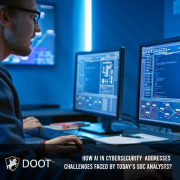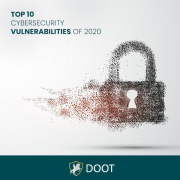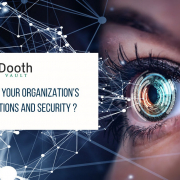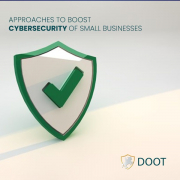The success of government policies is now closely connected with the successes of technologies adopted by the government. It is a long process to initiate and implement digital government policies, multiple budget processes and administrative tasks are involved in it.
A government’s digital technologies should be capable of reducing costs and increasing the efficiencies for citizens and businesses. Technologies are developing based on the demand depending on the tier of the government system, like national, state level, district, and local regional level.
Citizen digital identity and information security
All information related to a citizen is now digitized by the government metadata, national id cards, driving license, property details, financial details. The proliferation of digitalization in the government sector is increasing risks and security threats, where governments should strengthen their data security.
Technology and the Future of Public Management
Digital transformation makes the government more productive and efficient, which brings a new image of the government sector in the eyes of the public, and citizens can reach the government via digital platforms. Government policies and procedures are now becoming more productive and innovative and operations are paralleled to the digitally-driven world.
Digital government transformation is a trend and a forward move, but it has raised threats to cyber security.
Government is the biggest target of hackers
Earlier, hackers focused on data security, breaking into a system as part of a hobby or fun, but now profit motives have emerged and threatened the system. The hackers’ main target is always the government, because of the volume of data and higher profit margin.
Various governmental bodies experience multiple cyber intrusion or attempts, which requires regular monitoring, and implementing a wing of ethical hackers to find loopholes are one way of the solutions.
The government is becoming the main target for hackers than any other sector. Governments’ cyber securities are always a focal point for criminals because of huge volumes of data with weak data security measures when compared to big private companies.
The raising question is how governments can overcome cyber threats? But the fact is that total cyber security is not possible, every byte of data stored on the server is at risk.
Cyber security challenges
The government should cope up with the challenges and improve data security tools, but the question is on the effectiveness of tools, which needs more effort for the advancement of technology.
New trends in the cyber security system involve three fundamentals, secure, vigilant, and resilient. The government’s defense mechanism must evolve these three key principles. Instead of giving focus on prevention, it is important to give preference to detection, response, reconnaissance. Prevention is important, but detection is first.
Data is the most important asset for the government, similar to other sectors, governments and officials must give priority to critical assets and safeguard it well. The risk can’t be avoided in the digital era, but it’s important to categorize data based on its value and risk.
How to manage cyber risks?
Earlier the internet was a medium of sharing information or communication, and not for data protection. Threat aroused when huge volumes of sensitive data have been shared over the internet without any protection.
The internet presents new opportunities to the government like cloud computing, IT outsourcing, partnerships that in turn increase the complexities as well. Government’s interaction with employees and citizens through social media gives opportunities to cyber criminals.
In short, the digital government inescapably brings up new risks. But performance, achievement, innovation, and risk are interconnected and strong cyber security strategies can only overcome the threats.
Cyber Security And Data Protection
- Work around the clock and protect citizen data
- Improve cybersecurity for a large amount of highly sensitive data
- Opt a risk-based approach
- Both defense and detection are equally important
- Threat alert should be implemented to detect at the initial stage and blocking procedures
- Intrusion detection, advanced analytics, sharing information to all levels, seek prevention capabilities and repeat it
- Increase and improve threat detection capabilities of the government
- Put extra protection on data collection and analysis
- Government citizen communication should be protected with two-factor authentication
What is Digital Government?
This is the era of digital government, no one wants to wait in a queue for hours and hours, no one wants to go to agencies or offices for clearing out papers. The digital government can make it easier for citizens to communicate easily, put complaints, pay bills, taxes, and apply for various needs to be fulfilled easily via digital platforms.










Leave a Reply
Want to join the discussion?Feel free to contribute!